#louispasteur
Photo

Germ Theory
The Germ Theory, which emerged in the late 19th century, demonstrated that microscopic germs caused most human infectious diseases. The germs involved included bacteria, viruses, fungi, protozoa, and prions. Louis Pasteur (1822-1895), a French chemist and microbiologist, and Robert Koch (1843-1910), a German physician and microbiologist, are credited with the discovery of the germ theory in the 1860s-1880s.
Regarded as the most important discovery in the history of medicine, the germ theory challenged the medical profession to reevaluate how disease was thought about, offered possibilities for both the prevention and treatment of disease, as well as the discovery and implementation of new technologies to combat disease.
Previously, doctors assumed that disease was an internal process of the human body especially Hippocrates' long-standing four humors theory notion that excesses or deficiencies of four bodily fluids (blood, phlegm, yellow and black biles) led to illness and disease. The germ theory contradicted that idea by separating the disease from the afflicted persons. Furthermore, the new theory ushered in a regimented way of classifying diseases (nosology) according to the type of microorganisms causing the disease.
Historical Theories of Disease
Prior to the discovery of the germ theory, various theories were advanced as possible explanations for illness and disease in humans. The earliest theory was the miasma theory attributed to Hippocrates (460-370 BCE), a Greek physician. Derived from the Greek word meaning pollution or "bad air", the miasma theory suggested that decomposing particles from organic materials, plants or animals, poisoned the air. Although easily detected by smell, people who inhaled the "bad air" would become ill. Additionally, planetary movements, disturbances to the Earth, poor hygiene, and polluted water often contributed to miasma. Attempts to remove waste along with cleanliness were thought necessary to improve the atmosphere to avoid infection and disease.
Aristotle (384-322 BCE), a Greek philosopher, offered the spontaneous generation of disease. It was possible, Aristotle thought, for living organisms to spring from non-living matter. Furthermore, this process, like maggots appearing from dead flesh, was a regular and natural phenomenon.
Galen (129-216 CE), a Roman physician, extended Hippocrates' earlier speculation about the imbalance of bodily fluids as the cause of disease. Galen attached each of the four humors to a particular season characterized by hot, cold, dry, and wet. For example, colds and flues occurred most often during cold and wet weather. Any change in the weather or season could upset the balance of the four humors so treatments were devised to restore said balance e.g., purges, bloodletting, enemas, and vomits. These ancient theories dominated Western medical thinking about illness until the 19th century.
Another theory of the origin of diseases referred to supernatural causes. A person's sins resulted in contracting a disease or illness as a punishment from the gods or God. Ghosts, demons, and evil spirits also possessed the ability to afflict a person with illness. Magic, divination, spells, exorcism, and various drugs were used to diagnose and treat illness. It fell to a variety of healers – shamans, priests, diviners, medicine men – to drive away the evil spirits. Illness as a punishment for sins, as well as a test of faith, was later offered by Christian theologians as an explanation for disease.
Additional theories on the origin of diseases continued to emerge. Girolamo Fracastoro (1476-1553), an Italian physician, is credited with first using the word "contagion" when describing the transmission of illness. His "seeds of disease" theory argued that disease could be spread by direct or indirect contact or over long distances through no contact at all. A German chemist, Justus von Liebig (1803-1873), one of the early founders of organic chemistry, suggested that as a result of a chemical process from decaying organic matter, disease simply emerged in the blood (the body's "chemical factory").
Continue reading...
31 notes
·
View notes
Text

Still life with Pasteur's bust
Oil on canvas
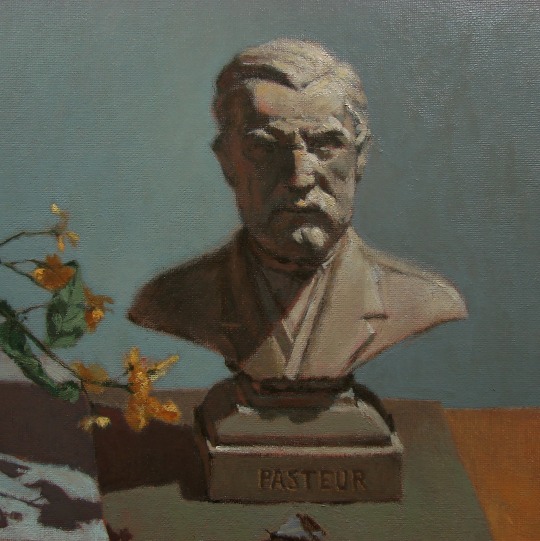

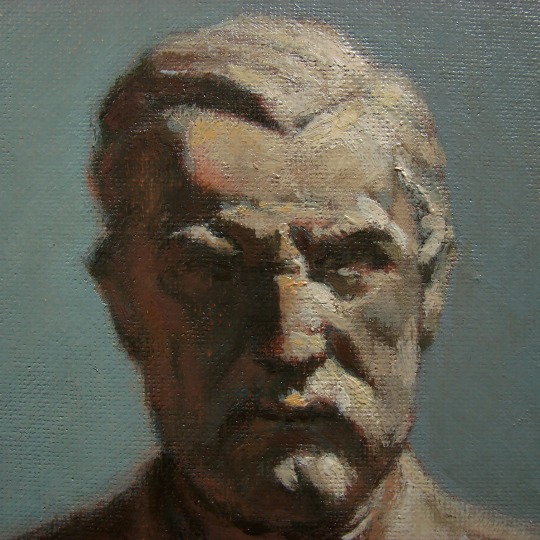
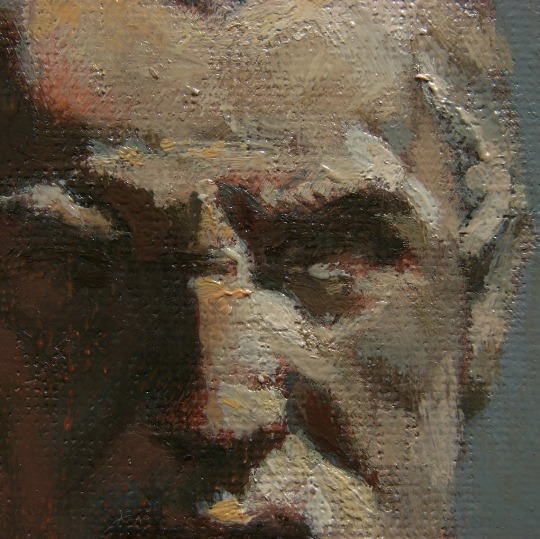
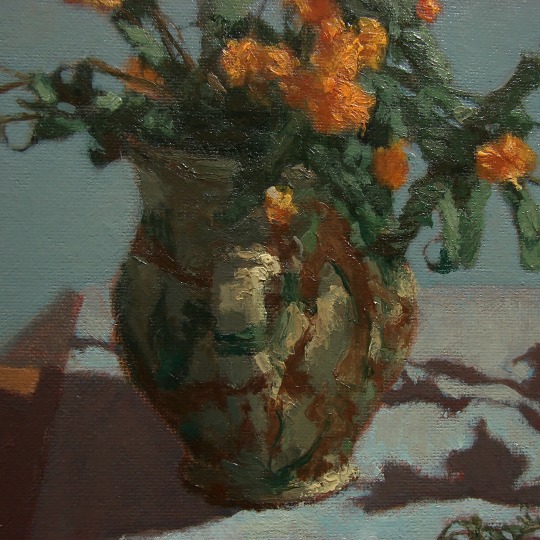



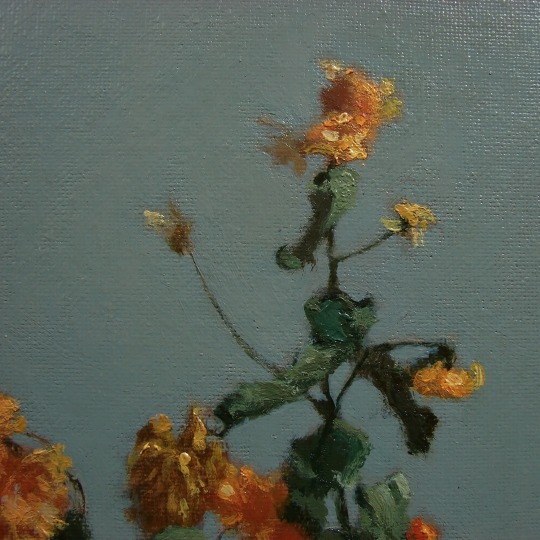
#stilllife#naturamoarta#naturamorta#naturastatica#oilpainting#painting#artwork#figurativeart#figurative#naturalezamuerta#stillleben#naturemorte#art#louispasteur#oilpaintings#driedflowers#figurative painter#painter on tumblr#painter#oil painting
33 notes
·
View notes
Photo
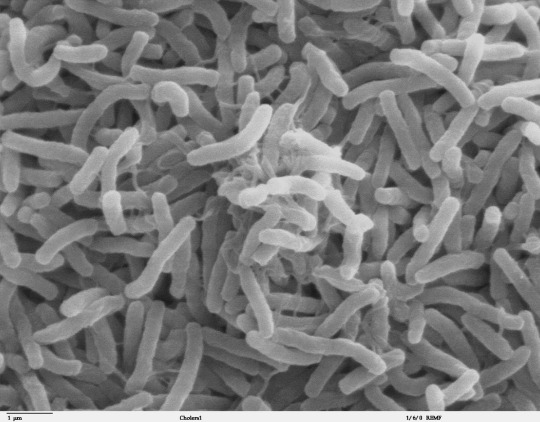
Théorie Microbienne
La théorie microbienne (alias théorie des germes), apparue à la fin du XIXe siècle, démontra que des germes microscopiques étaient à l'origine de la plupart des maladies infectieuses humaines. Les microbes en question sont les bactéries, les virus, les champignons, les protozoaires et les prions. Louis Pasteur (1822-1895), chimiste et microbiologiste français, et Robert Koch (1843-1910), médecin et microbiologiste allemand, furent à l'origine de la découverte de la théorie microbienne dans les années 1860-1880.
Lire la suite...
3 notes
·
View notes
Text

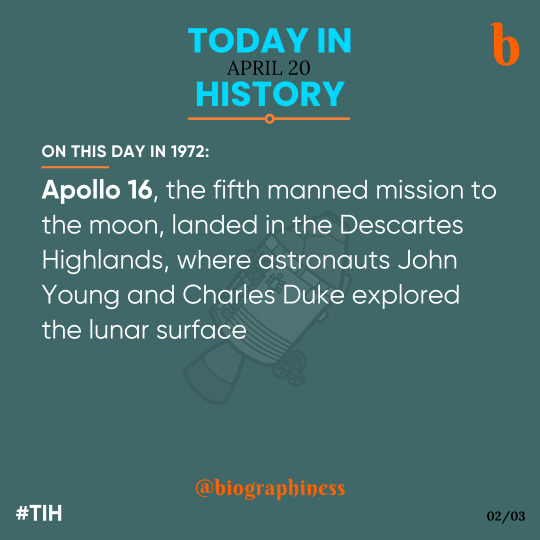

On April 20, from Pasteur’s milk to lunar leaps, and the Columbine tragedy—today marks a tapestry of innovation, exploration, and resilience.🌕🧪🏫
Follow👉 @biographiness
#Biographiness#Biograghines#TodayInHistory#TIH#onthisday#OTD#HistoryEvents#DailyHistory#HistoryFacts#April20#HistoryMatters#History#ScienceHistory#SpaceExploration#NeverForget#1862#1972#1999#Innovation#LouisPasteur#FoodSafety#Apollo16#MoonLanding#NASA#Astronomy#Columbine#SchoolSafety
1 note
·
View note
Text
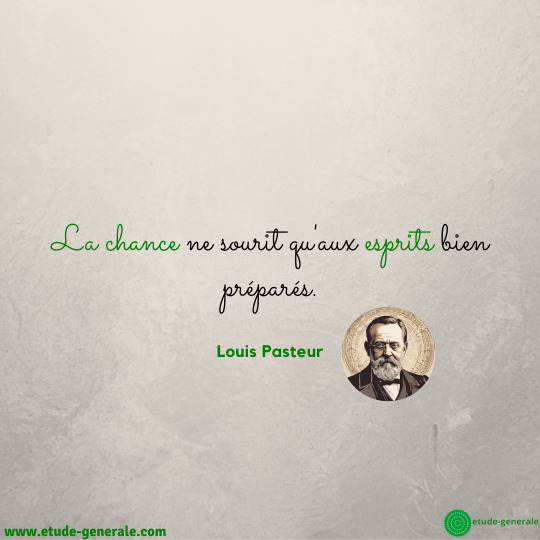
✍️Louis Pasteur (1822-1895), est un scientifique français, chimiste et physicien de formation.
etude-generale.com
#citation#citation française#quote#beautiful quote#citation du jour#quoteoftheday#quotes#francais#french#french quote#francaise#citationdujour#louispasteur#esprit#préparation
0 notes
Text
An Introduction to Louis Pasteur – The Father of Microbiology
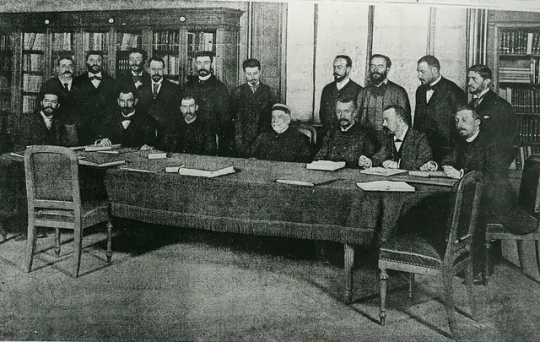
Louis Pasteur was one of the most influential scientists in history.
He made incredible contributions to science and medicine, changing our understanding of the microbial world and paving the way for revolutionary medical treatments and public health initiatives.
If you would like to learn more about this great scientist, keep reading!
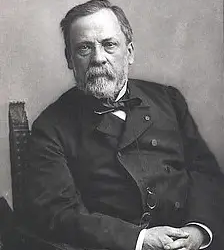
Louis Pasteur portait 1822-1895. Photo by Euclid vanderKroew. Flickr.
Who Was Louis Pasteur?
Louis Pasteur was born on December 27, 1822, in Dole, France. His parents were Jeanne Etiennette Roqui and Jean Joseph Pasteur (Tanner who worked with hides). Dispite being dyslexic and dysgraphic his early education focused on chemistry and physics. He would later become one of the most important microbiologists in history.
In his lifetime, he made tremendous contributions to science ranging from discoveries related to fermentation and pasteurization to advancements in medicine and public health.
His research revolutionized our understanding of microorganisms and disproved theories popular at the time about a spontaneous generation - the idea that microbes could arise from non-living matter.
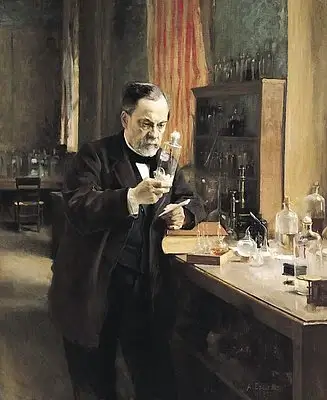
Louis Pasteur in his laboritory. Photo by Sanofi Pasteur. Flickr.
What Did He Discover?
Pasteur’s major breakthroughs included demonstrating that fermentation is caused by microorganisms, discovering pasteurization as a way to prevent spoilage of milk and wine, and developing vaccines for rabies and anthrax.
These discoveries had far-reaching implications for advancing healthcare globally as well as improving food safety standards everywhere. For instance, Pasteur's work on pasteurization has been credited with saving many lives by helping reduce contamination in food products such as milk, beer, juice, cheese, and many more items.
In addition, his development of vaccines helped make infections like rabies much less deadly than they once were.
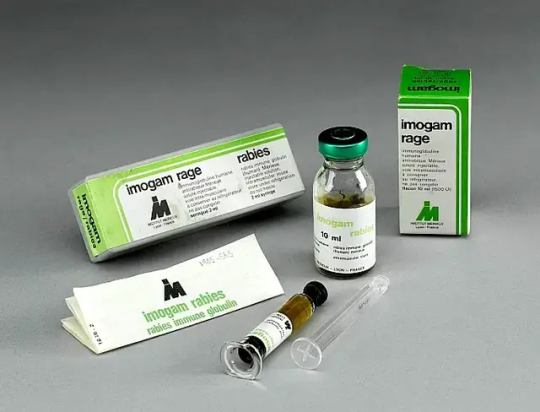
Human rabies immunoglobin vaccine and packaging. Photo by Institut Mérieux. British Science Museum.
How Did He Change The World?
Put simply, Louis Pasteur changed the world with his microbiology research. His discoveries led to major advances in healthcare that continue to benefit people today from reducing contamination of food products through pasteurization to preventing infectious diseases through vaccinations.
Moreover, his work inspired generations of scientists after him who continued making groundbreaking advances in medicine & public health based on what he started over a century ago!
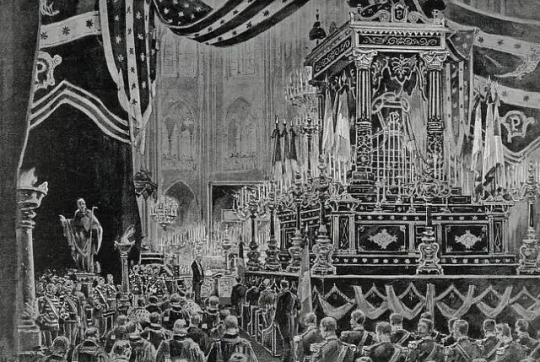
State funeral of Louis Pasteur at Notre Dame Cathedral in Paris. Lithograph by C. Hentschel, ca. 1895.
Final Years
During his lifetime, Pasteur worked tirelessly to develop revolutionary treatments and methods that remain highly influential today.
In the final years of his life, Louis Pasteur continued to achieve incredible feats. In 1895 he discovered a vaccine for rabies, which remains an effective treatment today.
His accomplishments were recognized by various awards, including the Legion of Honor from Emperor Napoleon III in 1853 and numerous honorary degrees from universities around Europe.
After Pasteur’s death in 1895 at age 72, millions of people around the world paid tribute to him as one of history’s most important scientists.
Conclusion
Louis Pasteur was an incredible scientist whose impact cannot be understated — from his discovery of fermenting agents causing disease & spoilage through vaccine development for diseases like rabies & anthrax!
His legacy continues today with countless lives saved due to improved food safety standards & reduced risk from infectious illnesses around the globe!
If you’re interested in learning more about this extraordinary scientist & his accomplishments then we recommend taking a look at some additional resources online or even checking out some books written about him!
Thanks for joining us on a brief introduction to Louis Pasteur – The Father of Microbiology!
Sources: THX News & Wikipedia.
Read the full article
0 notes
Photo
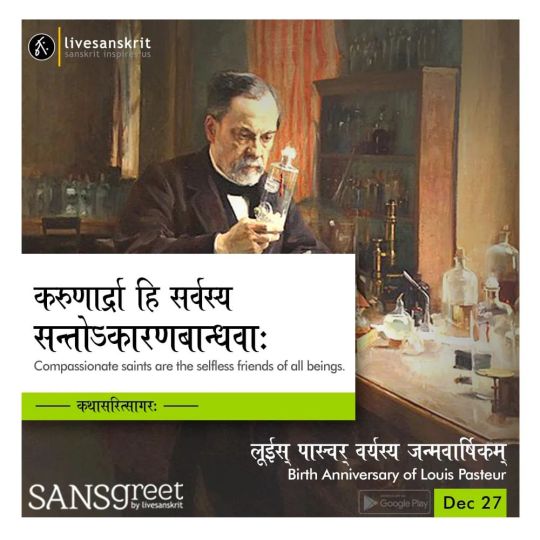
Send from Sansgreet Android App. Sanskrit greetings app from team @livesanskrit . It's the first Android app for sending @sanskrit greetings. Download app from https://livesanskrit.com/sansgreet Louis Pasteur. Louis Pasteur (December 27, 1822 – September 28, 1895) was a French biologist, microbiologist, and chemist renowned for his discoveries of the principles of vaccination, microbial fermentation, and pasteurization. He is remembered for his remarkable breakthroughs in the causes and prevention of diseases, and his discoveries have saved many lives ever since. He reduced mortality from puerperal fever and created the first vaccines for rabies and anthrax. #sansgreet #sanskritgreetings #greetingsinsanskrit #sanskritquotes #sanskritthoughts #emergingsanskrit #sanskrittrends #trendsinsanskrit #livesanskrit #sanskritlanguage #sanskritlove #sanskritdailyquotes #sanskritdailythoughts #sanskrit #samskrit #resanskrit #louispasteur #celebratingsanskrit #french #france #biologist #jura #dole #paris #microbiologist #chemist #rabies #anthrax #vaccination #chemistry https://www.instagram.com/p/CmpKVOaBPNO/?igshid=NGJjMDIxMWI=
#sansgreet#sanskritgreetings#greetingsinsanskrit#sanskritquotes#sanskritthoughts#emergingsanskrit#sanskrittrends#trendsinsanskrit#livesanskrit#sanskritlanguage#sanskritlove#sanskritdailyquotes#sanskritdailythoughts#sanskrit#samskrit#resanskrit#louispasteur#celebratingsanskrit#french#france#biologist#jura#dole#paris#microbiologist#chemist#rabies#anthrax#vaccination#chemistry
0 notes
Photo

Let me tell you the secret that has led me to my goal. My strength lies solely in my tenacity. - (Louis Pasteur) When it comes to your goals for 2022, be tenacious. Finish strong. #goals #FinishStrong #success #2022 #leadership #LouisPasteur #wednesday (at Salem, Oregon) https://www.instagram.com/p/ClB_L7HvF5k/?igshid=NGJjMDIxMWI=
0 notes
Photo

#happyfriday #begoodhumans #louispasteur https://www.instagram.com/p/Cki4KC6uQ3iE2xFqfSLO6zDRhn6EGc_OJdrx9Q0/?igshid=NGJjMDIxMWI=
0 notes
Text
youtube
#Fermentation#FoodFermentation#BiochemicalActivity#Bacteria#Fungus#Yeast#Growthoftheorganisms#Alcohol#Ethanol#Antibodies#Proteins#LouisPasteur#Pasteurization#Antigen#ELISA#UsesofFermentation#NutritionalValuesofFermentation#BenefitsofDietaryEffects#HarmfulEffects#MethodsofFermentation#Youtube
0 notes
Photo
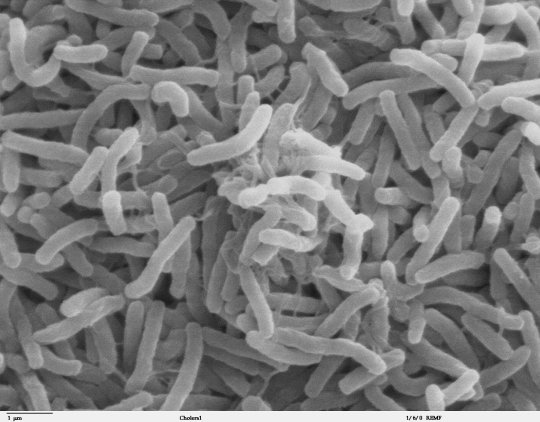
Germ Theory
The germ theory, which emerged in the late 19th century, demonstrated that microscopic germs caused most human infectious diseases. The germs involved included bacteria, viruses, fungi, protozoa, and prions. Louis Pasteur (1822-1895), a French chemist and microbiologist, and Robert Koch (1843-1910), a German physician and microbiologist, are credited with the discovery of the germ theory in the 1860s-1880s.
Continue reading...
28 notes
·
View notes
Text
Thank you so much Louis Pasteur.
Regards
Dr. BGR Publications

0 notes
Photo

Heute vor 200 Jahren wurde Louis Pasteur geboren. Er war Chemiker, Physiker, Biochemiker und Mitbegründer der medizinischen Mikrobiologie. Louis Pasteur und Prof. Dr. Enderlein waren somit Zeitgenossen und vertraten gegensätzliche Lehren. Louis Pasteur ve
Heute vor 200 Jahren wurde Louis Pasteur geboren. Er war Chemiker, Physiker, Biochemiker und Mitbegründer der medizinischen Mikrobiologie. Louis Pasteur und Prof. Dr. Enderlein waren somit Zeitgenossen und vertraten gegensätzliche Lehren. Louis Pasteur vertrat die Auffassung, dass das Blut steril sei. Enderlein hingegen wies nach, dass es im Blut Bakterien und andere Lebensformen gab ->womit das Blut nicht mehr steril war. Enderleins Meinung konnte sich allgemeinwissenschaftlich nicht durchsetzen und die Wissenschaft vertritt so Pasteurs Lehrmeinung.
Heute wollen wir diesen Menschen nicht nur im Zusammenhang mit dem Blut und Impfung gedenken. Pasteur entdeckte, dass die Hefe für die Gärung im Bier verantwortlich ist. Im Auftrage von einigen Brauereien forschte er nach, warum das Bier sauer wird. 1864 entwickelt Louis Pasteur das Pasteurisieren, wodurch das Abtöten von Mikroorganismen durch kurzzeitiges Erhitzen, die Haltbarkeit des Bieres deutlich erhöht. Wobei wir das Pasteurisieren eher in Zusammenhang mit der Milch kennen.
#louispasteur #enderlein #dunkelfeldmikroskopie #blutuntersuchung #pasteurisieren #hefe #bier #gesundheit #naturheilkunde #sanum-therapie
0 notes
Photo

Lasciate che vi dica il segreto che mi ha portato al successo. La mia forza risiede soltanto nella mia tenacia. - Louis Pasteur #infinitevibes #louispasteur #crescitapersonale #quote #tenacia #consapevolezza #frasedelgiorno
0 notes
